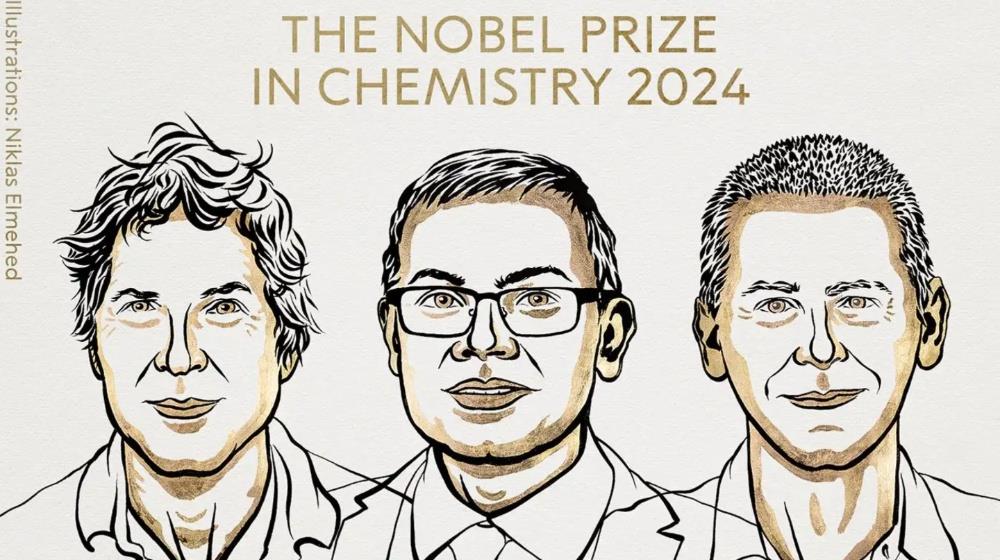The Nobel Prize in Chemistry has been awarded to three scientists for their work with proteins, including British Cypriot Dr Demis Hassabis - CEO and co-founder of DeepMind, Google’s AI arm.
The prize was awarded on 9 October to David Baker at the University of Washington “for computational protein design” and to Demis Hassabis and John M. Jumper of Google DeepMind “for protein structure prediction”.
Dr Demis Hassabis
This year’s prize is about the “chemical tools for life”, the Nobel Committee for Chemistry said in announcing the prize. “Work that once took years now takes just a few minutes thanks to this year’s chemistry laureates.”
Dr Hassabis and Dr Jumper, the committee said, have used their AI model AlphaFold2 to calculate the structure of all human proteins. The researchers “also predicted the structure of virtually all the 200 million proteins that researchers have so far discovered when mapping Earth’s organisms”, the committee said.
Dr Hassabis and Dr Jumper were part of a team at Google DeepMind, the company’s central AI lab, that developed a technology called AlphaFold. This AI technology can rapidly and reliably predict the physical shape of proteins and enzymes — the microscopic mechanisms that drive the behaviour of viruses, bacteria, the human body and all other living things.
Dr John M. Jumper
Biochemists have used the technology to speed the discovery of medicines, and it could also lead to new biological tools such as enzymes that efficiently break down plastic bottles and convert them into materials that are easily reused and recycled.
Proteins begin as strings of chemical compounds, before twisting and folding into three-dimensional shapes that define what they can and cannot do. Before the arrival of AlphaFold, scientists would spend months or even decades trying to pinpoint the precise shape of individual proteins.
David Baker
AlphaFold could do the job in a few hours or even a few minutes.
When the Google team unveiled the technology in 2020, many scientists had assumed that such as a breakthrough was still years away. Scientists had struggled for more than 50 years to solve what was called “the protein folding problem”.
Dr Baker “opened up a completely new world of protein structures that we had never seen before,” Johan Aqvist, a member of the Nobel Committee for Chemistry, said.
In 2003, the committee added, Dr Baker succeeded in designing a new protein that was unlike any other protein, which it said was something that “can only be described as an extraordinary development”.
His research group, the committee said, “has produced one imaginative protein creation after another, including proteins that can be used as pharmaceuticals, vaccines, nanomaterials and tiny sensors.”
The impact of the laureates’ work was huge, Aqvist said. “In order to understand how proteins work you need to know what they look like and that’s what this year’s laureates have done,” he said.
Who are the laureates?
Demis Hassabis was born in London, where his parents — one a Greek Cypriot, the other a Singaporean — ran a toy store. As a teenager, he was the second-highest ranked under-14 chess player in the world and began designing video games professionally before attending college.
After completing a computer science degree at the University of Cambridge, he founded his own video game company and then returned to academia for a doctorate in neuroscience. Dr Hassabis, along with a fellow academic and a childhood friend, founded an AI start-up that they called DeepMind in 2010. About four years later, Google acquired it for $650 million.
DeepMind’s stated goal was to build artificial general intelligence, a machine that can do anything the human brain can do. It also explored other technologies that help reach that goal and that can solve particular scientific problems. One of those technologies was AlphaFold.
John Jumper was born in the US. After finishing an undergraduate degree at Vanderbilt University and a master’s degree at the University of Cambridge, he completed a Ph.D. in theoretical chemistry at the University of Chicago. He joined DeepMind as a researcher in 2017 after Google had acquired the lab. Alongside Dr. Hassabis and others, he soon began work on what became AlphaFold.









